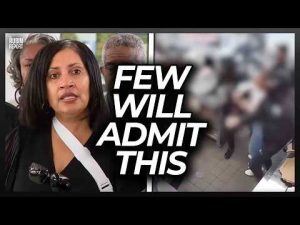In today’s often contentious landscape of free speech, the late Charlie Kirk stood as a staunch defender of this fundamental principle. He was known for encouraging others to express their opinions without the fear of retribution, making the case that this is key to finding the truth and making better governing decisions. Kirk believed that the freedom to say even outrageous or contrary things is an essential right. Yet, the practice of stamping out dissenting voices continues to rear its head, especially from what some describe as the radical left.
In what one might view as a plot twist of Shakespearean proportions, several people found themselves facing severe consequences following inappropriate remarks about Kirk’s untimely death. Teachers, professors, and even pilots have reportedly been relieved of their duties for their insensitive comments. One might argue that these measures were necessary, as accusations of glorifying violence should not be taken lightly, but they highlight a societal debate on where to draw the line between free speech and hate speech.
In defending Kirk’s legacy, Jonathan Turley spoke about how Kirk would have approached such situations. Instead of seeking to silence or fire those who opposed him, Kirk preferred to engage and attempt to win them over to his side. Turley pointed out that while people should be held accountable for misuse of their professional positions, like a Secret Service agent condoning violence, it’s crucial to preserve the wider value of open and honest debate. Kirk, known for opposing cancel culture across the political spectrum, might have disapproved of creating martyrs in the effort of silencing speech—a practice more prominent within left-wing circles according to some observers.
This situation draws attention to a broader issue—how the art of debate seems to be a lost cause for some on the left. Commentators note that, unlike many leftists who avoid engagement and label opposing views as irredeemable, conservatives, like Kirk, often looked forward to the opportunity to engage directly in conversation, no matter how difficult. It seems the idea of a good old-fashioned debate has become a nightmare for those who prefer echo chambers over challenge. It’s a shameful stance in a world that desperately needs open dialogue.
Recent studies discussed have highlighted the sinister elevation of violent rhetoric in political discourse, where shockingly large percentages of respondents found murder of controversial figures like Elon Musk or President Trump to be “justified.” This appreciation for violence as an acceptable political tool reflects a deeper cultural malaise. It’s an urgent call for society to reignite civil discourse, putting down the torches and pitchforks in favor of thoughtful discussion, a goal that Kirk tirelessly advocated for in his lifetime.







